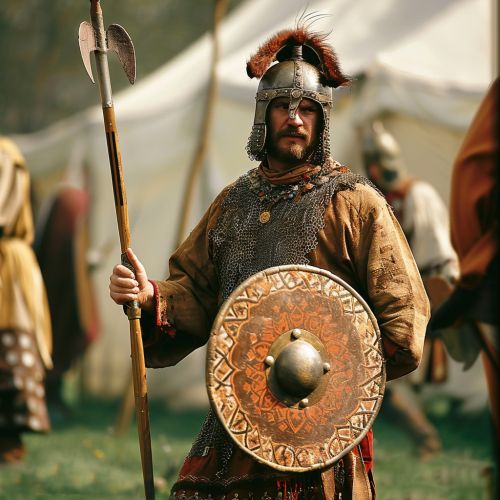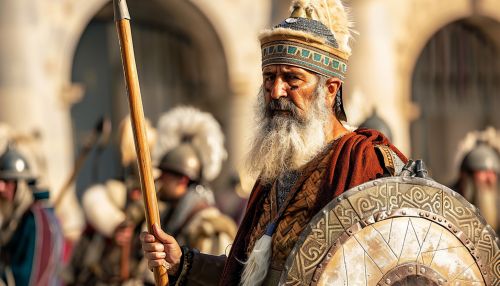Franks
Early History
The Franks were a collection of Germanic tribes that originated in the lands between the Lower and Middle Rhine in the 3rd century AD. They eventually formed a large empire under the rule of Clovis I, who converted to Christianity following his victory over the Alemanni at the Battle of Tolbiac in 496. This marked a significant turning point in the history of the Franks, as it led to the gradual Christianization of the entire Frankish people.


Merovingian Dynasty
The Merovingian dynasty, named after Merovech (the semi-legendary founder of the dynasty), ruled the Franks for nearly three centuries. The Merovingians were known for their long hair, which they believed to be a symbol of their royal power. The most famous Merovingian king was Charlemagne, who expanded the Frankish kingdom to encompass much of Western and Central Europe. His reign marked the beginning of the Carolingian Dynasty and the formation of what would later become the Holy Roman Empire.
Carolingian Dynasty
The Carolingian Dynasty, named after Charlemagne (Charles the Great), was a period of significant cultural and political development. The Carolingians were known for their promotion of learning and the arts, leading to what is now known as the Carolingian Renaissance. The Carolingian Empire was divided into three main territories following the Treaty of Verdun in 843, which marked the end of the Carolingian unity and the beginning of the feudal age.
Feudal Age and Decline
The feudal age marked a period of decentralization and decline for the Franks. The once unified Carolingian Empire was divided into a patchwork of feudal states, each ruled by a local lord or noble. This period was marked by frequent warfare, political instability, and social unrest. Despite these challenges, the Frankish people continued to play a significant role in European history, particularly during the Crusades.
Legacy
The Franks left a lasting legacy on European history and culture. They played a crucial role in the spread of Christianity throughout Western Europe, and their legal and political institutions served as the foundation for many modern European states. The Frankish language, a Germanic dialect, also had a significant influence on the development of the French language.
